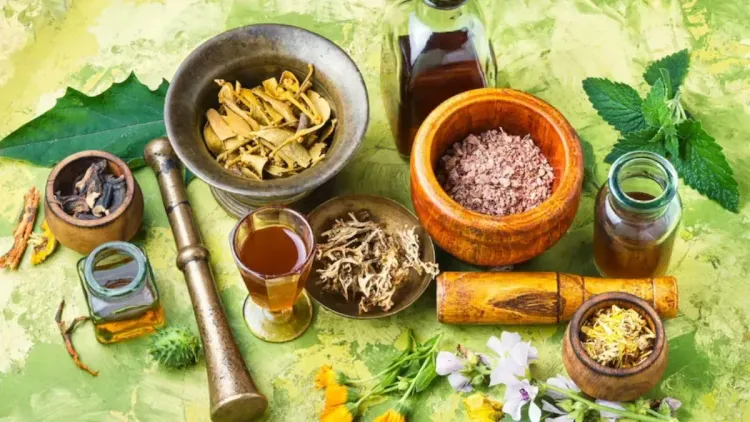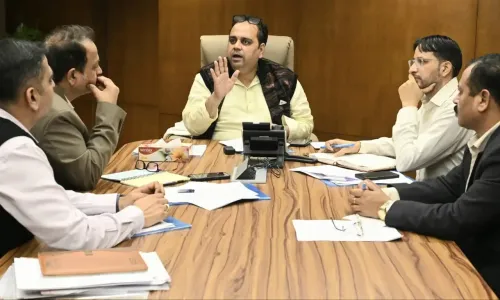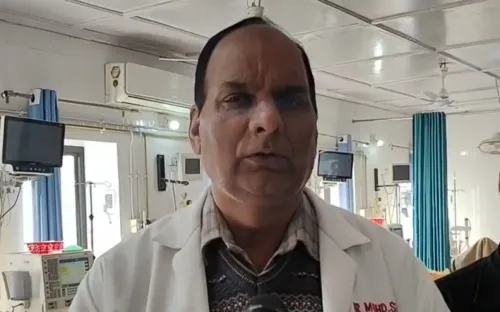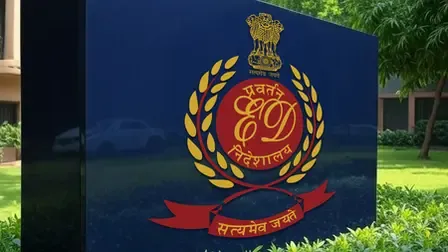How Did Ayurveda Day Evolve into a Global Health Movement?

Synopsis
Key Takeaways
- Ayurveda Day celebrates the ancient practice of holistic health.
- The event highlights the global expansion of Ayurveda.
- Importance of combating misinformation regarding Ayurveda.
- Promotes a sustainable approach to health and well-being.
- Encourages scientific validation of traditional knowledge.
New Delhi, Oct 21 (NationPress) Ayurveda Day has evolved from a national observance into a global health movement, according to Dr Naresh Kumar, Chief Scientist at the CSIR-National Institute of Science Communication and Policy Research (CSIR-NIScPR).
During the 10th Ayurveda Day celebration held at the institute last week, the expert underscored the remarkable international growth of Ayurveda.
This occasion signified a major leap in advocating Ayurveda as a holistic approach to health and well-being, deeply rooted in sustainability and natural living.
The event also featured a NIScPR SVASTIK lecture, part of the national initiative #SVASTIK (Scientifically Validated Societal Traditional Knowledge), aimed at disseminating scientifically verified traditional knowledge.
Kumar stressed the importance of Ayurvedic practitioners and researchers in combating misinformation and preventing adulteration, calling for standardized formulations, evidence-based integration, rational marketing, and heightened public awareness. He commended the #SVASTIK initiative for promoting traditional knowledge with a scientific perspective.
Dr Kishore Patel from the CCRAS-Central Ayurveda Research Institute (CARI), New Delhi, delivered an enlightening NIScPR SVASTIK lecture focusing on the foundational principles of Ayurveda.
Addressing the lifestyle and stress-related causes of diseases, Patel emphasized “the significance of balanced nutrition, mindful eating, and ethical living through the principles of Āchāra Rasāyana and Sadvṛtta for achieving holistic well-being”.
Rajesh Kumar Singh Roshan, Controller of Administration at CSIR-NIScPR, elaborated on the historical roots of Ayurveda and the contributions of ancient scholars like Āchārya Nāgārjuna.
He also discussed the increasing global acknowledgment of Ayurveda as a comprehensive health care system.
Prof. Ranjana Aggarwal, a distinguished organic chemist and former Director of CSIR-NIScPR, highlighted that a holistic approach integrating natural, social, and spiritual sciences is fundamental to India's scientific heritage.
She warned that misinformation often distorts traditional knowledge in the digital era, underscoring the need for clear communication, scientific validation, and educational inclusion.
Previously, Ayurveda Day was celebrated on Dhanteras annually, paying tribute to Lord Dhanwantari, the divine physician. The date, based on the lunar calendar, varied each year.
Consequently, the Ministry of Ayush has now fixed September 23 as Ayurveda Day, providing this ancient system with a universal calendar identity and allowing for greater global participation.










